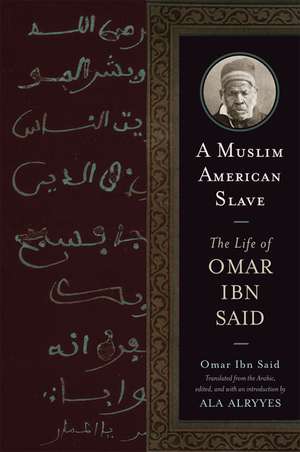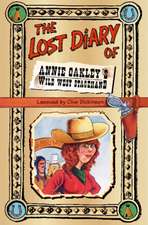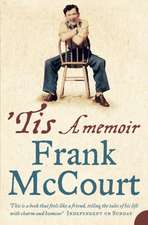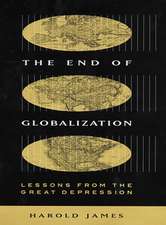A Muslim American Slave: The Life of Omar Ibn Said: Wisconsin Studies in Autobiography
Autor Omar Ibn Said Editat de Ala Alryyesen Limba Engleză Paperback – 20 iul 2011
Born to a wealthy family in West Africa around 1770, Omar Ibn Said was abducted and sold into slavery in the United States, where he came to the attention of a prominent North Carolina family after filling “the walls of his room with piteous petitions to be released, all written in the Arabic language,” as one local newspaper reported. Ibn Said soon became a local celebrity, and in 1831 he was asked to write his life story, producing the only known surviving American slave narrative written in Arabic.
In A Muslim American Slave, scholar and translator Ala Alryyes offers both a definitive translation and an authoritative edition of this singularly important work, lending new insights into the early history of Islam in America and exploring the multiple, shifting interpretations of Ibn Said’s narrative by the nineteenth-century missionaries, ethnographers, and intellectuals who championed it.
This edition presents the English translation on pages facing facsimile pages of Ibn Said’s Arabic narrative, augmented by Alryyes’s comprehensive introduction, contextual essays and historical commentary by leading literary critics and scholars of Islam and the African diaspora, photographs, maps, and other writings by Omar Ibn Said. The result is an invaluable addition to our understanding of writings by enslaved Americans and a timely reminder that “Islam” and “America” are not mutually exclusive terms.
This edition presents the English translation on pages facing facsimile pages of Ibn Said’s Arabic narrative, augmented by Alryyes’s comprehensive introduction and by photographs, maps, and other writings by Omar Ibn Said. The volume also includes contextual essays and historical commentary by literary critics and scholars of Islam and the African diaspora: Michael A. Gomez, Allan D. Austin, Robert J. Allison, Sylviane A. Diouf, Ghada Osman, and Camille F. Forbes. The result is an invaluable addition to our understanding of writings by enslaved Americans and a timely reminder that “Islam” and “America” are not mutually exclusive terms.
Best Books for General Audiences, selected by the American Association of School Librarians
In A Muslim American Slave, scholar and translator Ala Alryyes offers both a definitive translation and an authoritative edition of this singularly important work, lending new insights into the early history of Islam in America and exploring the multiple, shifting interpretations of Ibn Said’s narrative by the nineteenth-century missionaries, ethnographers, and intellectuals who championed it.
This edition presents the English translation on pages facing facsimile pages of Ibn Said’s Arabic narrative, augmented by Alryyes’s comprehensive introduction, contextual essays and historical commentary by leading literary critics and scholars of Islam and the African diaspora, photographs, maps, and other writings by Omar Ibn Said. The result is an invaluable addition to our understanding of writings by enslaved Americans and a timely reminder that “Islam” and “America” are not mutually exclusive terms.
This edition presents the English translation on pages facing facsimile pages of Ibn Said’s Arabic narrative, augmented by Alryyes’s comprehensive introduction and by photographs, maps, and other writings by Omar Ibn Said. The volume also includes contextual essays and historical commentary by literary critics and scholars of Islam and the African diaspora: Michael A. Gomez, Allan D. Austin, Robert J. Allison, Sylviane A. Diouf, Ghada Osman, and Camille F. Forbes. The result is an invaluable addition to our understanding of writings by enslaved Americans and a timely reminder that “Islam” and “America” are not mutually exclusive terms.
Best Books for General Audiences, selected by the American Association of School Librarians
Din seria Wisconsin Studies in Autobiography
-
 Preț: 202.05 lei
Preț: 202.05 lei -
 Preț: 174.01 lei
Preț: 174.01 lei -
 Preț: 175.69 lei
Preț: 175.69 lei -
 Preț: 100.10 lei
Preț: 100.10 lei -
 Preț: 134.46 lei
Preț: 134.46 lei -
 Preț: 125.93 lei
Preț: 125.93 lei -
 Preț: 126.34 lei
Preț: 126.34 lei -
 Preț: 131.50 lei
Preț: 131.50 lei -
 Preț: 188.08 lei
Preț: 188.08 lei -
 Preț: 215.75 lei
Preț: 215.75 lei -
 Preț: 173.51 lei
Preț: 173.51 lei -
 Preț: 233.44 lei
Preț: 233.44 lei -
 Preț: 356.27 lei
Preț: 356.27 lei -
 Preț: 208.44 lei
Preț: 208.44 lei -
 Preț: 200.48 lei
Preț: 200.48 lei - 8%
 Preț: 433.10 lei
Preț: 433.10 lei -
 Preț: 173.03 lei
Preț: 173.03 lei -
 Preț: 305.89 lei
Preț: 305.89 lei -
 Preț: 204.12 lei
Preț: 204.12 lei -
 Preț: 163.38 lei
Preț: 163.38 lei -
 Preț: 308.51 lei
Preț: 308.51 lei -
 Preț: 271.81 lei
Preț: 271.81 lei -
 Preț: 501.44 lei
Preț: 501.44 lei -
 Preț: 321.93 lei
Preț: 321.93 lei -
 Preț: 192.37 lei
Preț: 192.37 lei -
 Preț: 179.67 lei
Preț: 179.67 lei -
 Preț: 215.46 lei
Preț: 215.46 lei -
 Preț: 192.20 lei
Preț: 192.20 lei -
 Preț: 173.03 lei
Preț: 173.03 lei -
 Preț: 196.06 lei
Preț: 196.06 lei -
 Preț: 233.73 lei
Preț: 233.73 lei -
 Preț: 351.47 lei
Preț: 351.47 lei -
 Preț: 163.99 lei
Preț: 163.99 lei -
 Preț: 152.08 lei
Preț: 152.08 lei -
 Preț: 161.37 lei
Preț: 161.37 lei -
 Preț: 199.32 lei
Preț: 199.32 lei - 23%
 Preț: 476.83 lei
Preț: 476.83 lei -
 Preț: 179.67 lei
Preț: 179.67 lei -
 Preț: 126.12 lei
Preț: 126.12 lei -
 Preț: 156.72 lei
Preț: 156.72 lei -
 Preț: 506.64 lei
Preț: 506.64 lei -
 Preț: 191.22 lei
Preț: 191.22 lei - 12%
 Preț: 207.56 lei
Preț: 207.56 lei - 20%
 Preț: 417.10 lei
Preț: 417.10 lei - 14%
 Preț: 185.52 lei
Preț: 185.52 lei
Preț: 116.39 lei
Nou
Puncte Express: 175
Preț estimativ în valută:
22.27€ • 23.32$ • 18.43£
22.27€ • 23.32$ • 18.43£
Carte disponibilă
Livrare economică 15-29 martie
Preluare comenzi: 021 569.72.76
Specificații
ISBN-13: 9780299249540
ISBN-10: 0299249549
Pagini: 216
Ilustrații: 6 b-w photos
Dimensiuni: 152 x 229 x 18 mm
Greutate: 0.34 kg
Ediția:1
Editura: University of Wisconsin Press
Colecția University of Wisconsin Press
Seria Wisconsin Studies in Autobiography
ISBN-10: 0299249549
Pagini: 216
Ilustrații: 6 b-w photos
Dimensiuni: 152 x 229 x 18 mm
Greutate: 0.34 kg
Ediția:1
Editura: University of Wisconsin Press
Colecția University of Wisconsin Press
Seria Wisconsin Studies in Autobiography
Recenzii
“An indispensable introduction to the writing and world of Omar Ibn Said, whose Arabic slave narrative, masterfully translated and contextualized here, challenges our every assumption about American literature.”—Keith Cartwright, University of North Florida
“Expertly introduced, edited, and translated from the Arabic by Ala Alryyes, A Muslim American Slave: The Life of Omar Ibn Said offers the fullest historical, cultural, linguistic, and religious contexts for an understanding of this fascinating American slave narrative.”—Werner Sollors, Harvard University
“This critical study will enrich any undergraduate and graduate seminar on slavery, religion, literary resistance, and the development of an African American Islamic tradition under slavery.”—H-Net Reviews
“A rich exploration into the history of Islam and slavery in America.”—Library Journal
“In ‘A Muslim American Slave,’ Mr. Alryyes’s excellent commentary is accompanied by other scholarly essays that examine Ibn Said’s West African homeland and Michael Gomez’s history of the antebellum influx of Muslim slaves to the United States. The reader gleans a sense not only of Omar Ibn Said but also of the historical forces that shaped him.”—The Wall Street Journal
"[Omar Ibn Said] wrote the only surviving narrative of an enslaved person written in Arabic text... Ala Alryyes's book is essential for anyone who wishes to better understand Ibn Said's manuscript."—Teen Vogue
Notă biografică
Ala Alryyes is associate professor of comparative literature and English at Yale. He is author of Original Subjects: The Child, the Novel, and the Nation. He lives in Brooklyn.
Extras
“Then there came to our country a big army. It killed many people. It took me, and walked me to the big Sea, and sold me into hands of a Christian man.”—Omar Ibn Said
Cuprins
List of Illustrations
Acknowledgments
Chronology
Introduction: "Arabic Work," Islam, and American Literature
Ala Alryyes
The Life
The Life of Omar ibn Said, Written by Himself
Translated by Ala Alryyes
Autobiography of Omar ibn Said, Slave in North Carolina, 1831 (The American Historical Review, 1925, translated by Isaac Bird)
Contextual Essays
Muslims in Early America
Michael A. Gomez
Contemporary Contexts for Omar's Life and Life
Allan D. Austin
The United States and Barbary Coast Slavery
Robert J. Allison
"God Does Not Allow Kings to Enslave Their People": Islamic Reformists and the Transatlantic Slave Trade
Sylviane A. Diouf
Representing the West in the Arabic Language: The Slave Narrative of Omar ibn Said
Ghada Osman and Camille F. Forbes
Appendixes: Other Writings by Omar Ibn Said and Contemporary Texts
1. The Earliest known manuscript written by Omar, which accompanied a letter from John Louis Taylor to Francis Scott Key in 1819
Translated by John Hunwick
2. Letter from the Reverend Isaac Bird to Theodore Dwight
3. "Uncle Moreau," from North Carolina University Magazine (September 1854)
4. Ralph Gurley's "Secretary's Report," from African Repository (July 1837)
Contributors
Index
Acknowledgments
Chronology
Introduction: "Arabic Work," Islam, and American Literature
Ala Alryyes
The Life
The Life of Omar ibn Said, Written by Himself
Translated by Ala Alryyes
Autobiography of Omar ibn Said, Slave in North Carolina, 1831 (The American Historical Review, 1925, translated by Isaac Bird)
Contextual Essays
Muslims in Early America
Michael A. Gomez
Contemporary Contexts for Omar's Life and Life
Allan D. Austin
The United States and Barbary Coast Slavery
Robert J. Allison
"God Does Not Allow Kings to Enslave Their People": Islamic Reformists and the Transatlantic Slave Trade
Sylviane A. Diouf
Representing the West in the Arabic Language: The Slave Narrative of Omar ibn Said
Ghada Osman and Camille F. Forbes
Appendixes: Other Writings by Omar Ibn Said and Contemporary Texts
1. The Earliest known manuscript written by Omar, which accompanied a letter from John Louis Taylor to Francis Scott Key in 1819
Translated by John Hunwick
2. Letter from the Reverend Isaac Bird to Theodore Dwight
3. "Uncle Moreau," from North Carolina University Magazine (September 1854)
4. Ralph Gurley's "Secretary's Report," from African Repository (July 1837)
Contributors
Index
Descriere
This authoritative edition and translation of the only surviving American slave narrative written in Arabic offers an invaluable addition to our understanding of the literature written by enslaved Americans and a timely reminder that “Islam” and “America” are not mutually exclusive terms.















